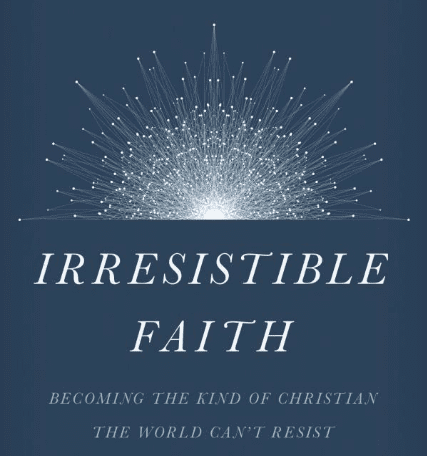 How odd that in the span of a few months two books by well-known American pastors appear with the title “Irresistible”? Well, the one for this blog is called Irresistible Faith. (The other one is too frustrating for me to blog about.)
How odd that in the span of a few months two books by well-known American pastors appear with the title “Irresistible”? Well, the one for this blog is called Irresistible Faith. (The other one is too frustrating for me to blog about.)
Scott Sauls, who in some ways has worn one of the mantle’s of Tim Keller, is a Nashville pastor with a new book called Irresistible Faith, with the subtitle Becoming the Kind of Christian the World Can’t Resist. His Amazon bio says:
Scott Sauls is senior pastor of Christ Presbyterian Church in Nashville. Before this, he served with Tim Keller at New York City’s Redeemer Presbyterian Church as a lead and preaching pastor. In addition to his books, Scott’s work has been featured in Christianity Today, Relevant Magazine, Qideas, Catalyst, Leadership Magazine, aholyexperience, OnFaith, The Gospel Coalition, Key Life, as well as other publications. Scott can be found on Facebook and Twitter/Instagram at @scottsauls. He also blogs regularly at scottsauls.com.
Sauls is a pastor and he writes like one; he’s intelligent so his church-oriented books have insight. A little fun first: there’s an irony here. I’ve been at this for too long to hear a Presbyterian use “irresistible” and not think of irresistible grace, one of the classic points in 5 point Calvinism, but everything about the theme of this book seems to lean in another direction, and that’s OK — the more the church becomes “irresistible,” which it never will master, the better. At least the church ought to lean in the direction of a compelling embodied faith.
I like this set of questions:
What would it look like for Christians to be reignited in this kind of faith for our time? What would it look like for us to become those who live most beautifully, love most deeply, and serve most faithfully in the places where we live, work, and play? What would it look like, as Tim Keller has said, for us to live so compellingly and lovingly in our neighborhoods, cities, and nations that if we were suddenly removed from the world, our non-believing neighbors would miss us terribly? What would it look like for Christians to become the first place people go for comfort when a life-altering diagnosis comes, when anxiety and depression hit, when a child goes astray, when a spouse files for divorce, or when a breadwinner loses a job? What would it look like for a woman with a crisis pregnancy to see the local church, not the local clinic, as her trustworthy source for love, non-judgment, practical support, wise counsel, and much-needed encouragement? What would it look like for the local church to become the most diverse and welcoming—rather than the most homogeneous and inhospitable—community on earth? What would it look like for Christians to become not only the best kind of friends, but the best kind of enemies, returning insults with kindness and persecution with prayers? What would it look like for Christians, en masse, to start loving and following the whole Jesus and the whole Scripture, the whole time, into the whole world?
And this:
It is heartening to see contemporary observers take note of how Christian belief, in its purest form, produces beautiful lives. New York Times columnist Nicholas Kristof frequently writes of how today’s Christians outnumber the rest of the world in volunteer hours and dollars given toward the alleviation of poverty and human suffering. The gay mayor of Portland, Oregon, Sam Adams, has spoken publicly about how positive his experience was partnering with local Christian churches to serve the vulnerable communities of Portland. Here in our Nashville community, an abortion provider who is beginning to engage with the claims and ways of Christ recently told a member of our church, “I want your God, whoever he or she is, to be my God”—which appears to be his way of saying, “I like your Christ, not in spite of your Christians, but because of them.















